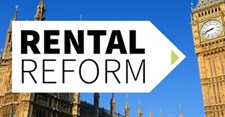Landlords
September 2024
The Renters' Reform Bill has returned to the Commons, five years and four prime ministers after its initial introduction.
If you are thinking about renting out a property, there are a significant number of statutory and regulatory requirements that you need to meet as a landlord. In fact, there are around 150 laws, and over 400 regulations, that need to be followed to legally let a property in England and Wales.
When a tenant vacates a property, it is good practice for a landlord to carry out an inspection and deal with any issues or concerns ahead of the property being occupied by a new tenant. But what exactly should a landlord be looking for?
There are a considerable number of legal and regulatory requirements placed on landlords when letting property. Those requirements extend to ensuring that you furnish tenants with relevant information concerning the property and their tenancy. The following is a list of documents that, by law, should accompany any new tenancy.
Landlords should take appropriate steps to ensure the health and safety of tenants by keeping rented property safe and free from health hazards, including Legionnaires' Disease. Landlords must conduct a risk assessment of rented property to identify conditions that might support the growth and multiplication of the Legionella bacteria


















